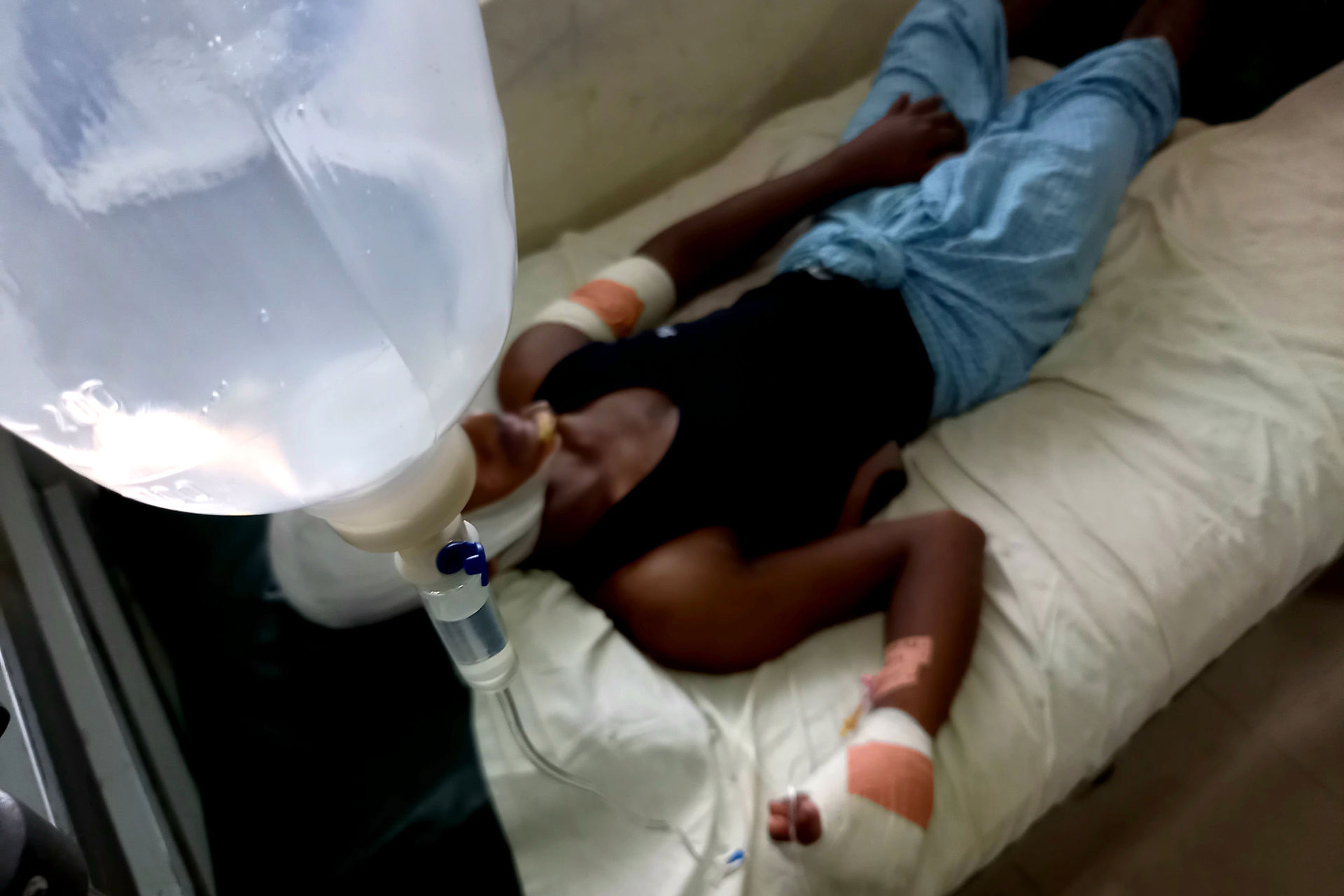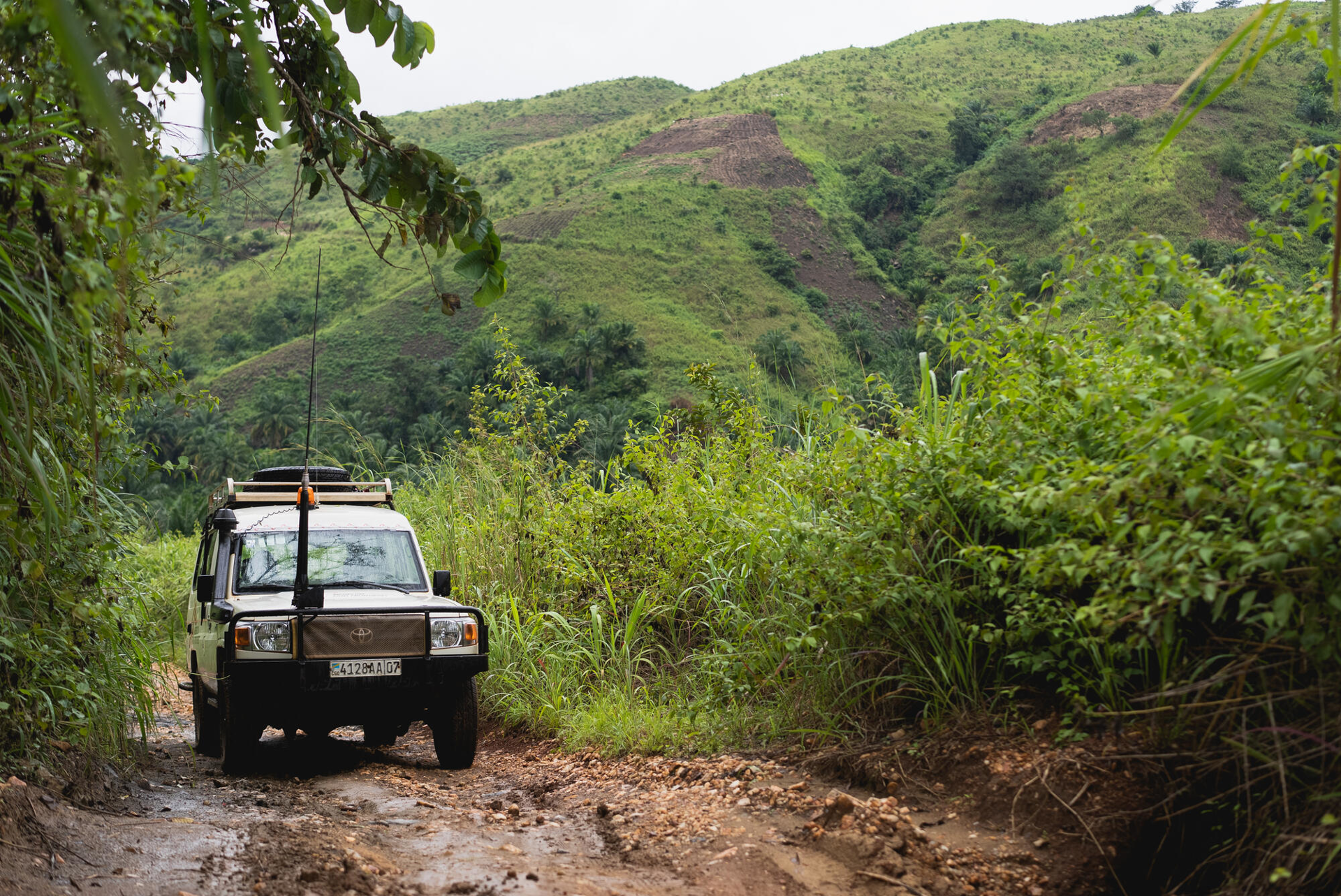In the early hours of the morning on 22 October, a group of armed men attacked residents in a Rohingya camp with a level of violence unseen since the arrival of hundreds of thousands of refugees to Cox's Bazar, four years ago. As well as 26 injured people, three dead bodies were brought to our MSF facility, and one patient died shortly after admission. According to local authorities, seven people died in total. The assailants allegedly belonged to an armed group active inside the camps. This new event has increased fear among all refugees living in the area due to a growing feeling of insecurity.
"I heard a lot of noise and shooting so I went to the madrasa (an Islamic educational institute) to fetch my brothers and take them home. They are only eight and nine years old and it was not safe. As we were walking back home, a group of people attacked us with sticks, knives and guns." Awas*, 20, recalls the morning of the attack as he lies in a bed in MSF's Kutupalong hospital recovering.
"I pushed my brothers away so that the attackers would go for me. They beat me all over and cut off two of my fingers," he says.
At the hospital Awas is surrounded by relatives, including some of his brothers. "I'm very scared, but we see no alternative but to go back. There are 12 of us at home, including my mum, my wife and my daughter," he says.
"Attackers came around 3 am. Some of us were praying and others were outside because we were afraid, we could be targeted," says Solim*, one of the madrasa's teachers. He was present during the attack and now he is currently also admitted in Kutupalong hospital.
"When it started, there were around 20 of us in the building – including some young children – and the attackers came through all four gates armed with sticks, knives and fire arms," says Solim.
Solim escaped death because assailants thought he was already dead. A dressing over his head covers a wound after a rock was thrown at him. "I fell unconscious, I don't even remember how I got the other injuries," he says. He has knife wounds in one arm and two broken fingers.
In his view, things will get worse in the refugee camps. "Violence will increase. People are afraid. We don't want to be with criminals, that is why some people run away from the camps no matter the risks," says Solim. "For us to feel safe, the authorities have to identify the attackers and to take action, and some of our community leaders need to raise their voice against these attacks."
Nine patients – three of them in critical condition – remain in Kutupalong hospital almost a week later, which came a month after the assassination of a prominent Rohingya leader also inside the camps, allegedly by a Rohingya armed group.
"We are still trying to understand how the situation will evolve after the incidents in camp 18, but we are seeing conditions in the camps deteriorate in many different ways," says Natàlia Torrent, MSF's country representative in Bangladesh. "Violent events are part of an overall situation that thousands of people are forced to face here. The immediate solution should not be only taking people to other camps but improving what is going on in these ones," says Torrent.
"These worsening conditions are taking a toll on refugees' lives. People's mental health is deteriorating, and there is an increasing sense of hopelessness, stress, anxiety, and depression in the camps," says Sandra Zanotti, mental health manager in MSF's Goyalmara hospital.
"Many people want to go back to Myanmar if their rights and safety can be guaranteed, as now they find that they cannot feel safe in the camps in Bangladesh and there is nothing they can do about it," Zanotti adds.
Some of the patients treated by MSF stated that they are afraid of going back home once they are discharged. "My family and I could be attacked," says Hossen*, one of the students injured at the madrasa. "They can attack anywhere, anyone who is not working with them."
He also expresses his concerns about how this situation may evolve saying this is the most serious attack he has seen since he arrived in Bangladesh in 2017. In his view, the authorities should do more. "The attackers can be identified. They have to be arrested and charged – not just freed shortly after," he says.
"No, we cannot go back home," says Zunaid's mother with a fearful look in her eyes. She sits in Kutupalong hospital by the bed of her 20-year-old son. Zunaid* was not even supposed to be in the camp where the attack happened. The evening before the attack, he was visiting a friend in camp 18 and it got too late to walk back home, so he decided to stay.
"In the middle of the night I heard some noise outside and I went to see what was going on. Suddenly, a group of men grabbed me. I was beaten all over with a wooden stick. I also was stabbed in the chest," says Zunaid. The next morning he was treated in MSF's Balukhali clinic and he is now recovering in the hospital. He lives with his parents and his wife, but he is very afraid of going back home. "I don't know what to do."
*Patients' names have been changed for security reasons.



